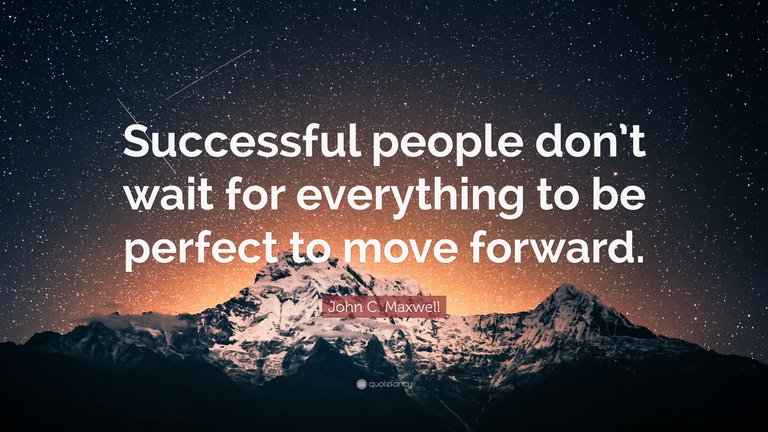I've seen two posts within a week about how to be successful on Hive. This one from @consciouscat and this one from @slobberchops. Both give some great tips and are recommended reading.
I was thinking about if I had anything to add to the conversation. At this point I'm probably one of the older accounts still active on Hive and I've been relatively successful in this time, so I must know some secrets, right? Right??

Well... no.
While I have done well here, many who have been here for less time do much better than me. So I'm not the one to come to for "instant success" posts. But I do have some tips. These aren't necessarily specific to Hive, but to life in general and to writing a little more specifically. They can work for you well on Hive, however. Let's get to them.
Secret Not-so-Secret Tips for Doing Well on Hive (and in Life too)
Tip 1: Show up
I think the only secret I know is that of consistency. I saw a post from @tarazkp awhile back about that one in which he mentioned he hasn't missed a daily post in a few years (this post), and he mentions in that post that @taskmaster4450 has also gone quite long without missing a day. I'm not quite in their league. I'm going off memory here, but my first two years I posted almost everyday, but then I missed a lot of days in my third year due to some personal events at the time; while I have been everyday since that point making it at least 600 in a row, my overall consistency is low. Overall my post count is high (at least 1400 according to @hivebuzz) but I do have those missed days in my 3rd year that screw up my record.
Anyway, we're not here to talk of my failings: we are here to talk of the power of consistency, or showing up every day.
There are so many quotes that cover this. I happen to like Woody Allen's quip "80% of success is showing up".

Stephen King locks himself in his office from 7am to noon everyday and forces himself to write, whether he has an idea or not. Neil Gaiman does something similar, usually using a cafe instead of his office. He brings a notebook and fountain pen to a cafe and nothing else, so either he sits there bored for several hours or he writes something.
You may say those guys are highly successful so they can afford the time to do that—a poor schmo like me can't. True. But even before they were successful they showed up everyday.
Stephen King would sit at his typewriter every night after his wife and kids went to bed. He had his day job as an English teacher and he even had extra part time jobs to help pay for his kids, but he still showed up everyday to write.
Neil Gaiman would do the same. Then later when he was trying to become a novelist, he would sit up in bed every night after his wife went to bed and he'd write longhand a page or two of a story. His comic book writing income was enough to get by so he didn't need to do this, but he still showed up everyday. And it paid off—he is now one of the most successful novelists today.
So show up to Hive everyday. Write something. Post it. Repeat. It doesn't have to be a masterpiece—it doesn't even have to be especially good writing—just show up and write. A lot of stuff may be ignored. Scratch that. A lot of still will be ignored. But we are playing the long game here. Remember the Tortoise and the Hare. Slow and steady, my friend. Show up everyday and you drastically increase your chances of being seen and finding your way to Hive success.
And if you don't get noticed, well, at least you'll get a lot of writing practice. And that's not a bad thing either. You'll have plenty of samples if you decide to send a writing query to some online magazine.

Tip 2: Don't Be Perfect
That wasn't what I wanted to talk about. The article just started and I already went on some wild digression! Ahh... oh wait, maybe that's tip number two. Yes, that's it: don't be afraid to fall off the point. Don't aim for perfection. Just keep writing!
I think many writers get stuck on wanting to make everything they post perfect. It should be long, it should be exciting, it should make the reader want more. If any whales happen to stumble across your post you want to really pull them in, right?
The problem there is that it will never be perfect. And aiming for that perfection at best slows you down and at worst prevents you from publishing. No one is perfect. Just write.

Also, there is art in not being perfect.
I've told the story before, but one of my favorite newspaper columns when I was growing up was from a guy named Peter David. He wrote his weekly column for many many years. It was nominally about geek stuff—Star Trek, comic books, sci-fi movies, that kind of thing—but he would almost always get off track right and the beginning and move from topic to topic, taking a long meandering path to the end of the column, a series of digressions that gave his column its name But I Digress.
I guess that's a common enough thing in newspaper columns. A column is more about the personality of the writer than the writing. But Peter David's column seemed to be a little more rambling than most.
And here is when I steal his column title. But I digress. The point is, just keep writing. You'll craft some interesting posts. Maybe you'll get a newspaper column out of it too.

Tip 3: Write Early, Not Late

Image by Kat from Pixabay
I know I know I know, waking up is hard. I agree. But please bear with me.
You may have heard of the novel Zen and the Art of Motorcycle Maintenance. It was an extremely popular book a generation or two ago and continues to be fairly popular. It was something of a philosophy textbook disguised as a hippy journey disguised as a book about motorcycles. It's a great book and worth the read.
The author, Robert Pirsig, wrote the book in an interesting way. He would wake up at 2 am, write until 6 am, then go to work. After work he's go to bed almost immediately after getting home, around 6 pm. He did this so that he wouldn't be bothered by his wife or son, phone calls or visitors. For that time he could direct all his focus to his writing. Having that quiet time is a big plus, but I think there is a lot to be said for doing it early too.
I think most of us are the opposite, we try to stay up late to complete our work. We get home from work, eat, shower, play with kids, then work after everyone goes to bed. But what usually happens when we do this? Either we find ourselves nodding off or at least we have a had time focusing. At worst we completely fall asleep. And is it surprising? We are fried from work. What's the solution? Make coffee? That might help a frazzled and tired mind, but it will also ensure more difficult sleep later in the night.
Here is where waking up early comes in. The advantage of waking up early is that your brain is fresh, and fresh is the best time to do something. Have you ever heard the phrase "Death by a thousand cuts"? I'm sure you have. The idea is that a large number of very small things can add up to a big thing. A thousand paper cuts will kill you just as much as one big cut.
Well, this is why we can't think well at the end of the day. We are forced to make a million decisions everyday. They might be small, worthless decisions, like do I want the dark roast or light roast at Starbucks, but a million tiny decisions drains you just as much as a few big ones.
This is why people in high stress situations try to eliminate as many pointless decisions as they can. Most famously you have Steve Jobs who wore the same black turtleneck every single day, or Obama who only wore blue or grey suits.
This is why writing first thing in the morning has so much power. Our thinking hasn't been worn down by countless decisions, our focus hasn't been scattered to bits by all these paper cuts.
So turn off the TV, stop trying to keep yourself awake to work at night. Go to bed early and set your alarm an hour earlier than usual. It will be tough to get up—let's face it, it's always tough to get up—but once you make yourself do it and sit down to write, you may find you can think a little better.

Anyway, I've rambled on long enough. So there you go, three things that might help you find a little more success on Hive.
1. Show Up
2. Don't Be Perfect
3. Write Early in the Day
Good luck!
❦


 |
David LaSpina is an American photographer and translator lost in Japan, trying to capture the beauty of this country one photo at a time and searching for the perfect haiku. |
If this blog post has entertained or helped you, please follow/upvote/reblog. If you want to further support my writing, donations are welcome.




